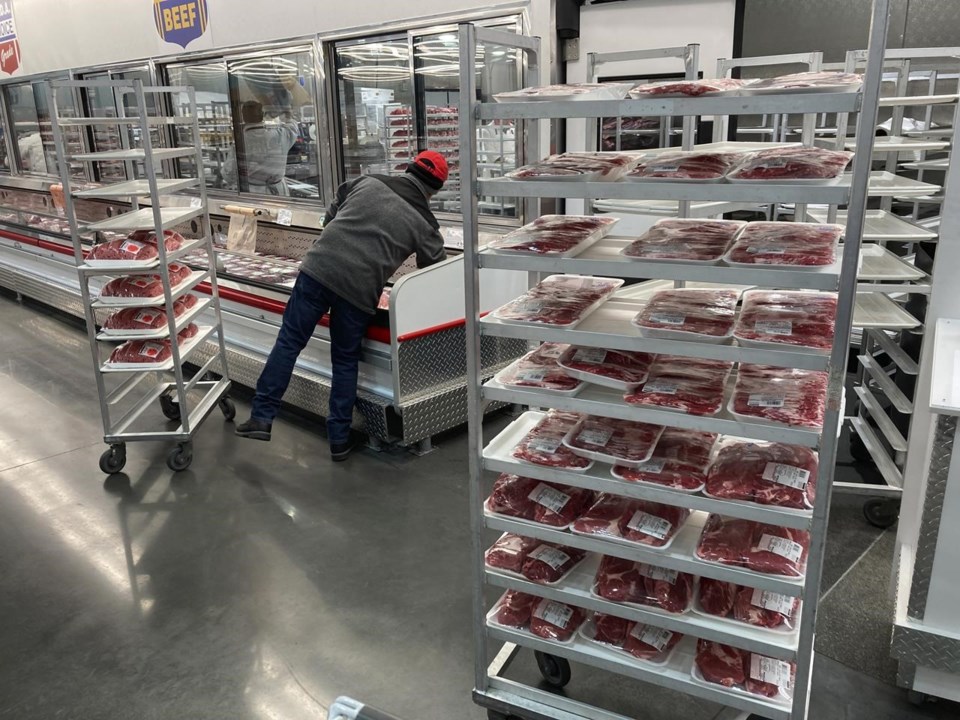WASHINGTON (AP) — The Congressional Budget Office said Wednesday that it expects the U.S. economy to stagnate this year with the jumping to 5.1% — a bleak outlook that was paired with a 10-year projection that publicly held U.S. debt would nearly double to $46.4 trillion in 2033.
The office's updated 10-year Budget and Economic Outlook outlined stark expectations for the decade ahead, where Social Security would be unable to pay full benefits to recipients in 2032 — with a roughly 20 percent reduction in benefits across the board — and the net interest costs on U.S. debt would eclipse what the nation spends on defense.
“The debt trajectory is unsustainable,” CBO director Phillip Swagel told journalists at a press conference after the report's afternoon release. The CBO can't tell Congress what to do, he said, ”but at some point, something has to give — whether it’s on spending or revenue."
The latest figures seemed to affirm the worst fears of many U.S. consumers and businesses. But in a reminder that the U.S. economy has seldom behaved as anticipated through the pandemic and its aftermath, from the pace of hiring so far this year.
The CBO estimated that just 108,000 jobs will be added in 2023, but employers added 517,000 jobs in January alone. It also assumes that inflation will ease from 6.4% to 4.8% this year, far more pessimistic than Federal Reserve officials who in December said inflation would fall to 3.5%.
The CBO separately pointed to the risks of not increasing the government's legal borrowing authority, noting that the Treasury Department could exhaust its current “extraordinary measures” to keep the government running while President Joe Biden and House Speaker Kevin McCarthy jostle over a deal.
Treasury Secretary Janet Yellen , stating that her agency will use creative accounting measures to buy time until Congress can pass legislation that will either raise the nation’s $31.4 trillion borrowing authority or suspend it again for a period of time.
If tax receipts from this year’s filing season fall short of estimated amounts, the U.S. could hit its statutory debt ceiling earlier than July, according to the nonpartisan organization, which provides independent analyses of budget and economic issues to Congress.
Following the CBO issuing its report, Senate Democrats reiterated their calls for Republicans to help pass legislation to increase the nation’s borrowing authority. Then, they said, lawmakers could turn their attention to funding the government and addressing the solvency of Medicare and Social Security.
“We don’t want to cut benefits. We don’t want to privatize. We don’t want to do the kinds of things that Republicans have talked about in that area,” Senate Majority Leader Chuck Schumer, D-N.Y., said of Social Security. “And we have some plans to make it solvent, which you’ll hear from down the road.”
Sen. Chuck Grassley, R-Iowa, ranking member of the Senate Budget Committee, said the report “paints a dire picture.”
“If we don’t get serious about reining in spending, reducing annual budget deficits and bringing down the debt, the country will end up spending more on interest payments than the programs that actually benefit Americans,” Grassley said.
The outlook warns about rising yearly budget deficits. In 2033, the CBO anticipates that the yearly shortfall in tax revenues relative to spending would exceed $2.85 trillion, more than double the deficit in 2022. Publicly held debt was roughly equal to U.S. gross domestic product in 2022, but it would climb to 118% of GDP by 2033.
The office says the biggest drivers of rising debt in relation to GDP are increasing interest costs and spending for Medicare and Social Security.
The two parties also engaged in blaming the other side for the rising deficit projections. Republicans blamed Democrats for spending too much during the Biden presidency and Democrats blamed Republican for the tax cuts undertaken during the Trump presidency.
“Biden’s numerous bailouts and massive government expansion disguised as COVID relief has blown out spending and exacerbated our debt disaster,” said Rep. Jodey Arrington, the Republican chairman of the House Budget Committee. “House Republicans must rein-in the unbridled spending and restore fiscal sanity in Washington before it’s too late.”
Sen. Sheldon Whitehouse, the Democratic chairman of the Senate Budget Committee, said Republicans “deliberately” made the deficit worse during the Trump presidency with “massive revenue losses because they lowered tax rates for their corporate and billionaire friends and donors.”
One reason why the CBO expects a slowdown this year are the actions taken by the Fed. The U.S. central bank has been trying to reduce inflation by raising its benchmark interest rates. the Fed raised its key interest rate a quarter-point, its eighth hike since March of last year.
The CBO expects growth to pick up once the Fed has tamed inflation and pulls back on its benchmark rates.
Fatima Hussein, Josh Boak And Kevin Freking, The Associated Press



